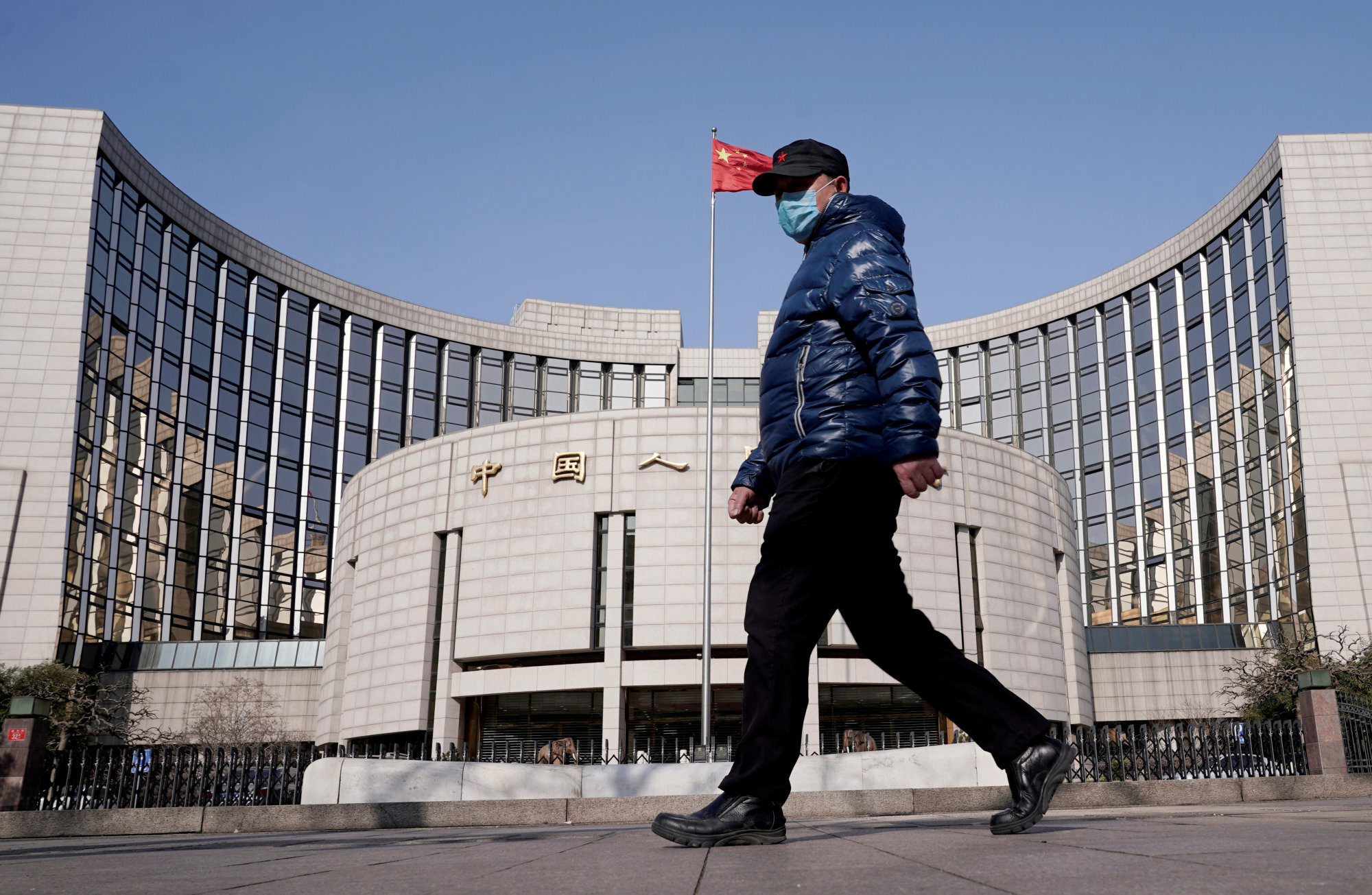
IMF urges China to reduce corporate debt risk made worse by heavy pandemic lending
- Chinese financial authorities should stop providing such easy access to capital, especially to ‘riskier borrowers’, International Monetary Fund says
- China made it easier for businesses to borrow during the pandemic to keep them and the economy afloat, and loans went to many struggling firms
The International Monetary Fund on Tuesday urged China to further address its high corporate debt levels that have resulted from the easy monetary policy put in place during the coronavirus pandemic.
The IMF, while applauding the Chinese government’s swift public health measures, said it did so at a cost.
“China, of course, has re-emerged from the crisis more quickly than any other country. The measures that were taken were very quick and very effective,” said Tobias Adrian, financial counsellor at the IMF. “But the measures that were deployed have led to [a] further increase in leverage and vulnerabilities.”
China’s financial authorities, the IMF financiers said, should move away from providing easy access to capital to rein in corporate debt risks.
According to an IMF report on global financial stability released on Tuesday, the vulnerabilities in China were particularly “driven by riskier corporate borrowers”.
China made it easier for businesses to borrow during the pandemic to keep them and the economy afloat. Companies large and small borrowed at a rapid pace and the loans went to many struggling firms.
The nation’s debt-to-GDP ratio rose to 266.4 per cent at the end of the third quarter in 2020, up from 245.4 per cent a year earlier, according to the Chinese Academy of Social Sciences (CASS), a State Council-affiliated think tank. It expects the ratio to hit 275 per cent for the whole of 2020.
This has exacerbated the debt problem that existed before the pandemic.
Economic recovery from coronavirus ‘increasingly visible’ as IMF lifts China, global outlook
Pre-Covid, many Chinese firms received favourable pricing on their bonds and loans because of implicit guarantees, as governments at various levels provided backstops to local borrowers to attract investors.
Among the debt issued by companies that had two years of operating losses before the pandemic, more than two-thirds had credit spreads that implied a relatively low risk of default, the report said.
The spreads, the difference in yield between the government and the corporate debt, were distorted by the implied government guarantee, not the soundness of the business, the report said.
Several unexpected defaults of state-owned enterprises in the fourth quarter of 2020 have raised investor concerns about the presumed guarantees for weaker borrowers. That has started to translate into an uptick in future default risks, the report said.

Last year, Chinese state firms defaulted on 71.8 billion yuan (US$11.1 billion) worth of debt, accounting for 51 per cent of all defaults, and the largest default total for state firms since China first allowed onshore bond defaults in 2014, according to data from the National Institution for Finance & Development (NIFD), a government-linked think tank.During the same period, credit growth peaked, according to China’s central bank.
Chinese authorities have recently signalled a tightening in monetary and fiscal policy to focus on the containment of debt risks. China’s economy grew 2.3 per cent in 2020 and is expected to expand another 8.4 per cent, according to a separate IMF report released on Tuesday.
The country’s authorities have taken steps to impose financial discipline on banks, local governments and property developers. Funds from weaker and smaller banks have become less accessible since early last month.
China leaves key interest rate unchanged for 11th straight month
So far the approach has been moderate. Two weeks ago, the People’s Bank of China kept the loan prime rate – a benchmark for lending costs – unchanged for the 11th straight month.
Evan Papageorgiou, the IMF’s deputy chief of global markets monitoring and analysis, said on Tuesday that it was “very important to unwind the implicit guarantees embedded in the system”.
“This transition is urgently needed to alleviate distortions in credit allocation and to limit further growth in risky corporate debt,” said Papageorgiou. “It is a very delicate act but an urgent one in order to achieve financial stability.”

